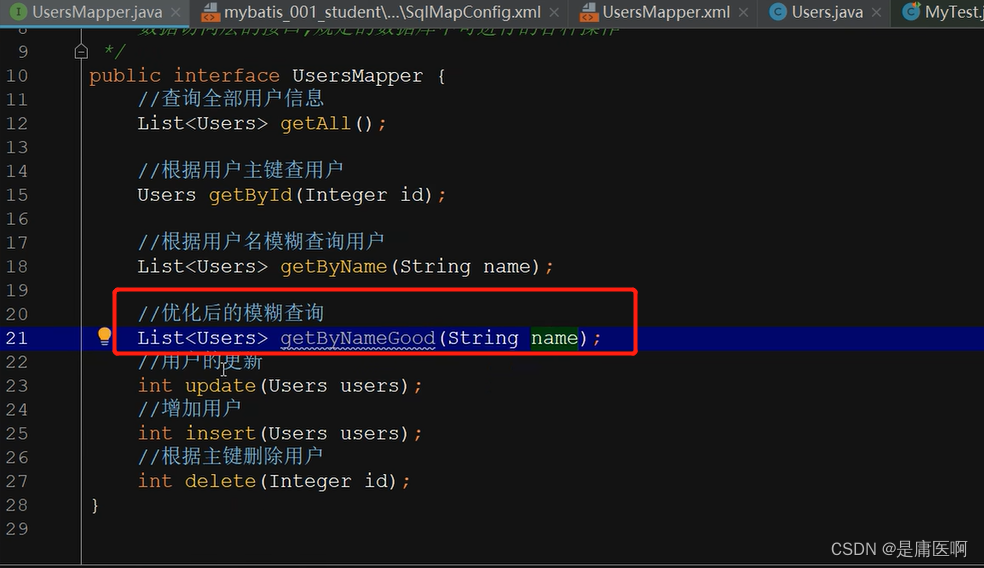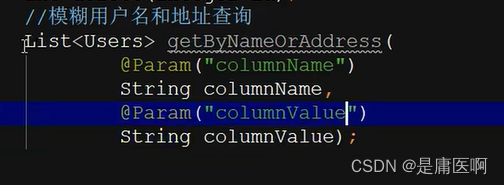目录
#{}占位符
传参大部分使用#{}传参,它的底层使用的是PreparedStatement对象,是安全的数据库访问 ,防止sql注入。
#{}里如何写,看parameterType参数的类型
1)如果parameterType的类型是简单类型(8种基本(封装)+String),则#{}里随便写。
<select id="getById" parameterType="int" resultType="users"> ===>入参类型是简单类型
select id,username,birthday,sex,address
from users
where id=#{zar} ===>随便写
</select>
2)parameterType的类型是实体类的类型,则#{}里只能是类中成员变量的名称,而且区分大小写。
<insert id="insert" parameterType="users" > ===>入参是实体类
insert into users (username, birthday, sex, address) values(#{userName},#{birthday},#{sex},#{address}) ==>成员变量名称
</insert>
${}字符串拼接或字符串替换
1)字符串拼接,一般用于模糊查询中.建议少用,因为有sql注入的风险
也分两种情况,同样的看parameterType的类型
A. 如果parameterType的类型是简单类型,则${}里随便写,但是分版本,如果是3.5.1及以下的版本,只以写value
<select id="getByName" parameterType="string" resultType="users"> ===>入参是简单类型
select id,username,birthday,sex,address
from users
where username like '%${zar}%' ===>随便写
</select> B. 如果parameterType的类型是实体类的类型,则${}里只能是类中成员变量的名称.(少用)
C. 优化后的模糊查询(以后都要使用这种方式)


<select id="getByNameGood" parameterType="string" resultType="users">
select id,username,birthday,sex,address
from users
where username like concat('%',#{name},'%')
</select>2)字符串替换
需求:模糊地址或用户名查询
select * from users where username like '%小%';
select * from users where address like '%市%'

<!--
//模糊用户名和地址查询
//如果参数超过一个,则parameterType不写
List<Users> getByNameOrAddress(
@Param("columnName") ===>为了在sql语句中使用的名称
String columnName,
@Param("columnValue") ===>为了在sql语句中使用的名称








 用来定义代码片段,可以将所有的列名,或复杂的条件定义为代码片断,供使用时调用。用来引用定义的代码片段。
用来定义代码片段,可以将所有的列名,或复杂的条件定义为代码片断,供使用时调用。用来引用定义的代码片段。
 最低0.47元/天 解锁文章
最低0.47元/天 解锁文章















 695
695











 被折叠的 条评论
为什么被折叠?
被折叠的 条评论
为什么被折叠?








